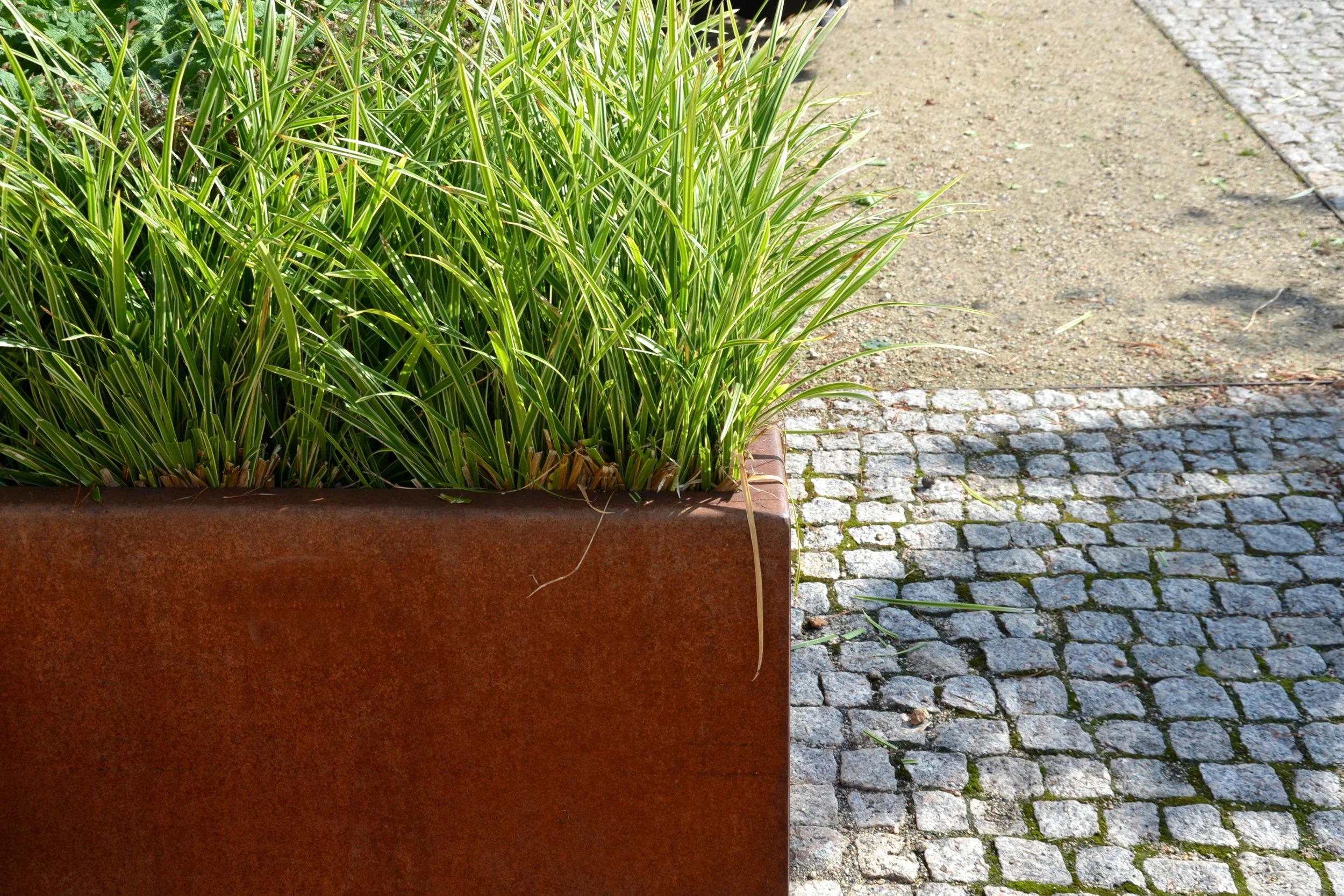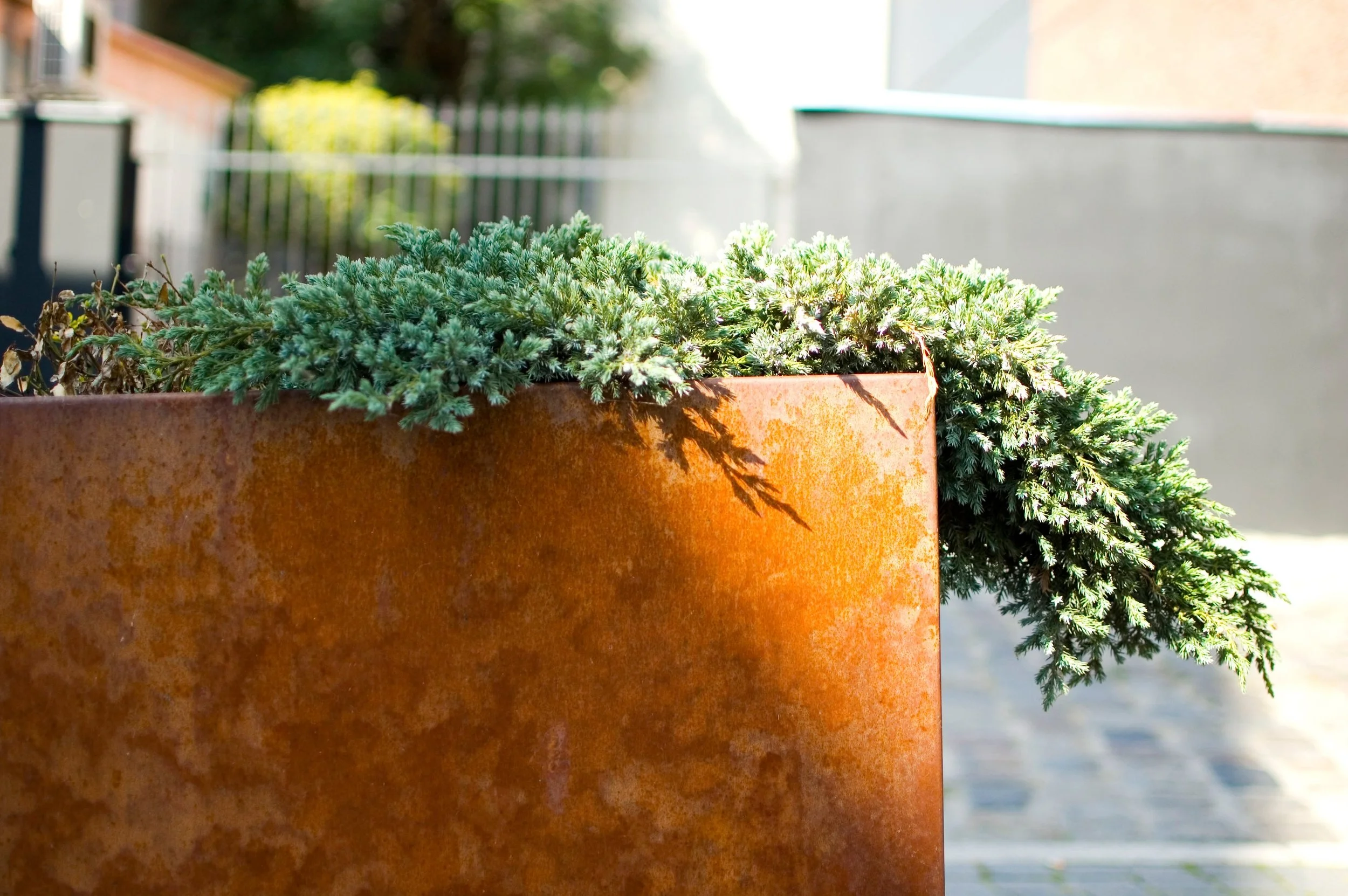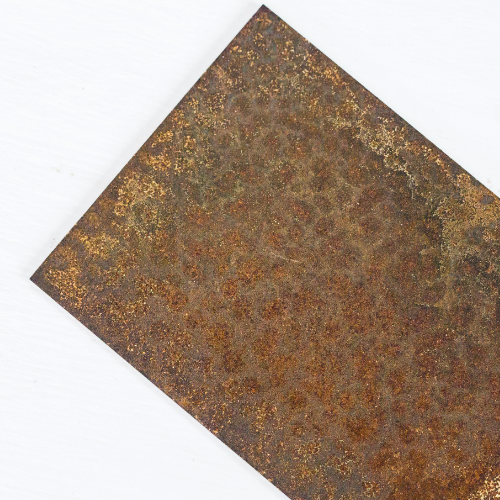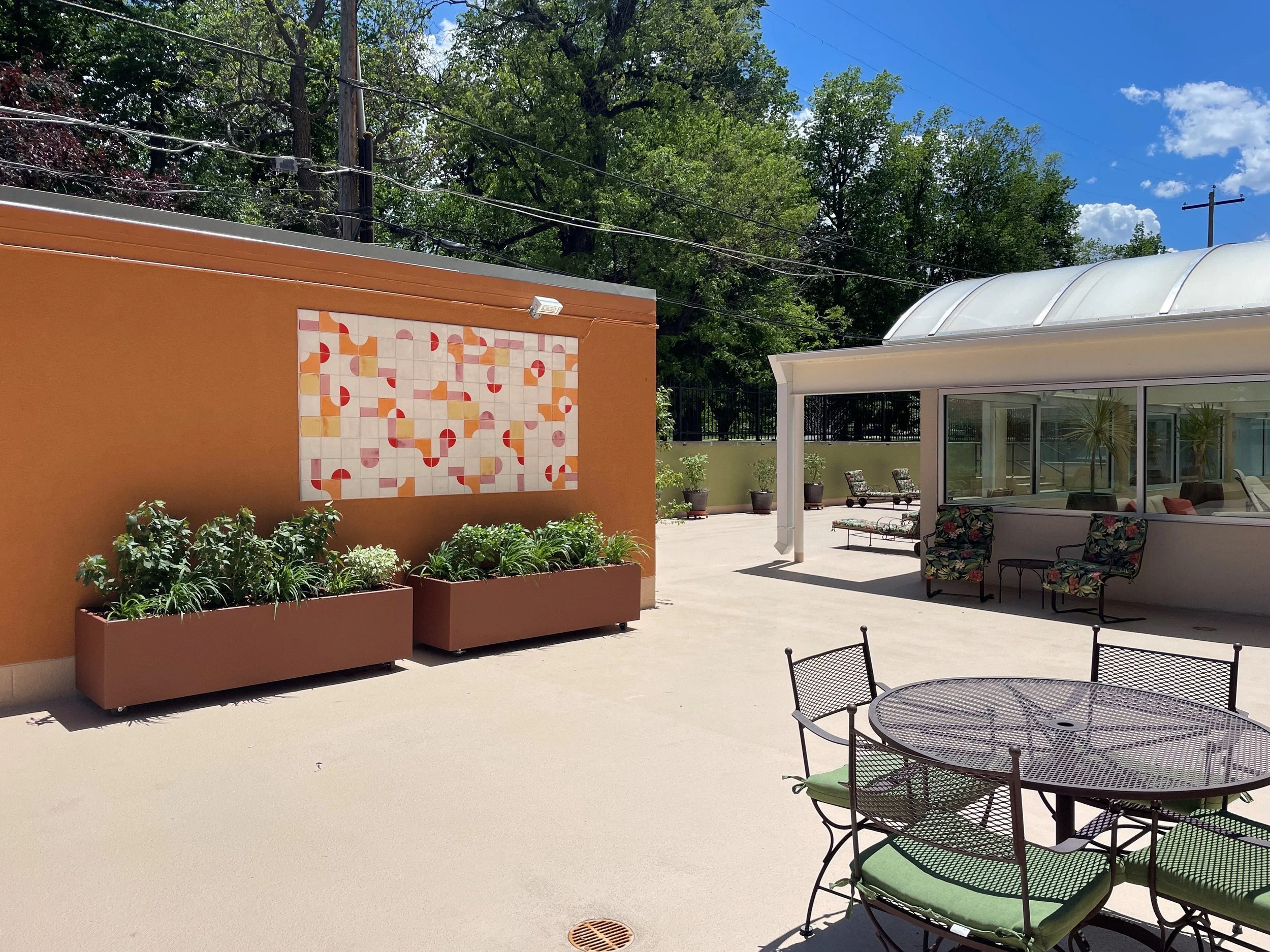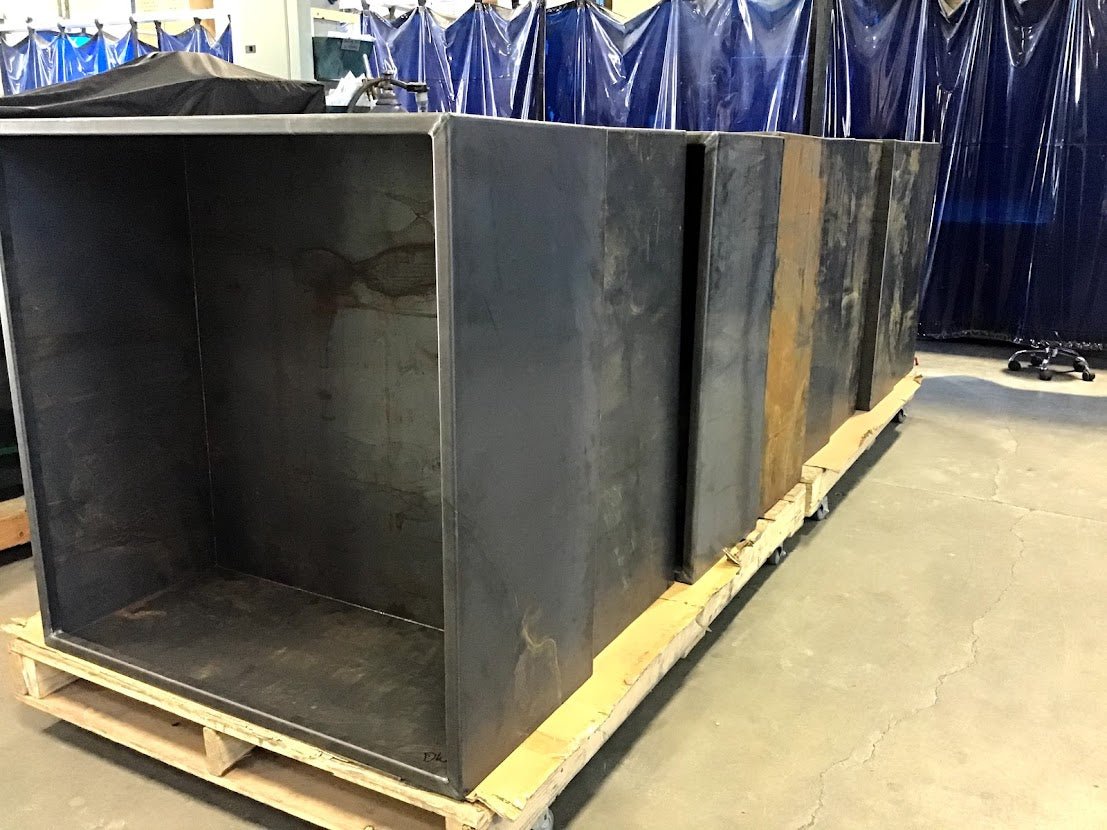Weathering Steel Planters
When a landscape project calls for the modern industrial look of COR-TEN Weathering Steel Planter boxes, it’s important to achieve the right aesthetic and find a product that will be durable and functional. And it’s equally important to find a reliable planter product manufacturer.
Keep reading to find answers to frequently asked questions and helpful information about:
The benefits of COR-TEN Steel Planters
How long COR-TEN Steel Planters will last
Cost
Where you can find a reliable planter product manufacture
COR-TEN Weathering Steel Planter
The Benefits of COR-TEN Steel
COR-TEN is a naturally oxidized steel alloy. The product’s name stems from two of its essential properties and strongest benefits: corrosion resistance (COR) and tensile strength (TEN).
Landscape designers love COR-TEN weathering steel for outdoor projects because of its unique look and durability.
COR-TEN steel is designed to resist corrosion with the help of a protective patina that forms on the surface. This stable rust-like appearance makes COR-TEN steel planters a resilient landscape design option for climates where products must endure moisture and other elements.
For COR-TEN to become fully corrosion-resistant and develop its patina, it needs to be exposed to the elements outdoors so it can undergo the patina oxidation process. During this process, the steel changes from a raw metal look (in which the color of the steel is gray) to patina (where the metal turns the color of orange-brown).
COR-TEN Weathering Steel Planter
How Long Will COR-TEN Steel Planters Last?
COR-TEN Steel Planters are fabricated using highly durable materials that last up to 50 years, sometimes even longer.
The longevity of each planter will vary depending upon factors like:
Climate. Saltwater can erode weathering steel over time and prevent it from developing the protective coating, so COR-TEN Weathering Steel Planters should be located at least two miles away from large bodies of saltwater.
Drainage. Your COR-TEN steel planters can stand up to moisture but must cycle through dry periods.
Thickness of the steel. Thicker steel lasts longer than thin steel. We recommend a 1/8" thickness (11 gauge) of steel.
COR-TEN Weathering Steel Planter Sample
Are Steel Planters Good for Plants?
If clients wonder about steel being safe for plants, in our professional opinion, the answer is yes.
Although we don’t claim to be experts in metal runoff, we have never heard of any reported issues harming plants on our past weathering steel installations.
Over long periods of time, small amounts of metal may seep into the soil, but not enough to harm plants. Plus, COR-TEN weathering steel is highly durable, so there is no likelihood of the material breaking down.
In fact, when one of our clients questioned if COR-TEN would negatively affect their plants, we found that the industry promotes COR-TEN as safe for vegetable gardens since the amount of metal seepage is very small. Weathering steel composition actually includes several metals considered essential micronutrients for plants, such as Iron, Manganese, and Copper.
Average Cost of COR-TEN Steel Planters
Compared to other materials, COR-TEN Steel Planters will be more expensive. But, as they say, you do get what you pay for in this case. You’re providing your client with a quality, long-lasting product when you buy a COR-TEN Planter.
Click here to get an idea of how much a COR-TEN Steel Planter from PureModern costs.
Modern Elite Faux Rust Metal Planters with casters.
Do Metal Planter Boxes Get Too Hot?
Because metal conducts heat, metal planters — just like metal patio furniture — will be warm to the touch after sun exposure. But will it be too hot? No.
Near the edges of the metal planter, soil temperature may rise ever so slightly, but not enough to impact your plants. However, when temperatures outside begin to drop, a metal planter will help insulate plants and keep soil temperatures warm longer.
If there are still concerns, we can use insulation foam board on the interior of any of our metal planters.
What Else Should I Know About Weathering Steel Planters?
Here are three more things we think you should know about COR-TEN Weathering Steel Planters:
Before purchasing planters made from COR-TEN steel, it is important to understand that during the patina process, bleeding may occur onto the supporting surface and possibly stain the surrounding area after heavy rain or watering. We recommend incorporating this consideration into your design plan so rainwater does not drain from the metal onto surfaces where staining would be visible.
Because the outdoor elements are essential to the patina process discussed earlier, we only recommend COR-TEN Planters for outdoor use.
When you first receive your weathering steel planter, it’ll have the look of raw metal and will begin to patina and appear bronze once it’s placed outside. Alternatively, some clients prefer to have the patina process accelerated. We can do that for you by pre-treating your planter before shipment. However, it will need to go outside once you receive it to complete the oxidation process.
Learn More
There is no one-size-fits-all formula for any landscape design plan. But COR-TEN Steel Planters will fit your needs if you want a modern industrial design, don’t mind waiting for the material to patina, and the surrounding area of the planter can tolerate metal bleeding.
And if you’re looking for a reliable planter product manufacturer, PureModern will not disappoint.
Call us at 866-319-0514 to talk about your using COR-TEN Weathering Steel Planters — or an alternative material — in your next project.

